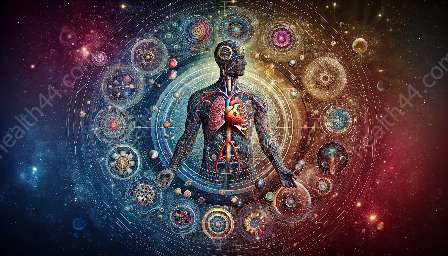Reproductive physiology encompasses the complex processes and mechanisms that govern human reproduction. Understanding this topic is crucial for both health education and medical training, as it underpins the functioning of the reproductive system and fertility. In this article, we will delve into the captivating world of reproductive physiology, exploring the physiological mechanisms that regulate human reproduction and the factors influencing reproductive health.
The Female Reproductive System
The female reproductive system is a marvel of physiological engineering, comprising organs and structures that work in harmony to facilitate conception and fetal development. Key components of the female reproductive system include the ovaries, fallopian tubes, uterus, and vagina. The ovaries, in particular, play a central role in the reproductive process, producing and releasing eggs while also secreting important hormones such as estrogen and progesterone.
During the menstrual cycle, the ovaries coordinate with the pituitary gland and hypothalamus to regulate the release of hormones, ensuring the growth and maturation of ovarian follicles and the preparation of the uterine lining for potential embryo implantation. Understanding the intricate hormonal interactions within the female reproductive system is fundamental to comprehending fertility, menstruation, and menopause.
Male Reproductive Physiology
The male reproductive system is equally remarkable in its design and function. The testes, located within the scrotum, are the primary organs responsible for sperm production. Spermatozoa undergo a complex process of development within the seminiferous tubules of the testes, eventually maturing and being stored in the epididymis.
Upon ejaculation, sperm travel through the vas deferens and mix with seminal fluid from the seminal vesicles and prostate gland, forming semen. The process of sperm production, maturation, and ejaculation is governed by a delicate interplay of hormones and neural signals, demonstrating the intricacy of male reproductive physiology.
Reproductive Hormones and Regulation
Central to the regulation of reproductive physiology are various hormones that orchestrate the processes of ovulation, fertilization, and pregnancy. In females, the hypothalamus-pituitary-ovarian axis governs the release of follicle-stimulating hormone (FSH) and luteinizing hormone (LH), which control the menstrual cycle and ovulation.
In males, the hypothalamus-pituitary-gonadal axis regulates the secretion of gonadotropin-releasing hormone (GnRH), which stimulates the release of FSH and LH, essential for testicular function and sperm production. Additionally, sex steroid hormones, including estrogen, progesterone, and testosterone, play vital roles in the regulation of reproductive physiology and the development of secondary sexual characteristics.
Reproductive Health and Disorders
Understanding reproductive physiology is crucial for identifying and addressing reproductive health issues. Infertility, menstrual disorders, hormonal imbalances, and reproductive tract infections are just a few examples of conditions that can arise when the delicate balance of reproductive physiology is disrupted.
- Infertility:
- Menstrual Disorders:
- Reproductive Tract Infections:
Infertility affects a significant proportion of couples worldwide and can stem from a variety of causes, including hormonal imbalances, anatomical abnormalities, and lifestyle factors. Understanding the physiological basis of fertility and infertility is essential for managing and treating infertility effectively.
Menstrual irregularities, such as amenorrhea and dysmenorrhea, can result from disruptions in the hormonal regulation of the menstrual cycle. Delving into the intricacies of reproductive physiology can shed light on the underlying causes of these disorders, guiding appropriate interventions and treatment.
Infections of the reproductive tract, such as sexually transmitted infections (STIs), can have detrimental effects on reproductive physiology. Understanding the immune responses and physiological changes that occur during reproductive tract infections is integral to effectively managing and preventing these conditions.
Reproductive Physiology in Medical Training
For aspiring healthcare professionals, a thorough understanding of reproductive physiology is essential for providing effective patient care. Whether pursuing a career in obstetrics and gynecology, reproductive endocrinology, or urology, a comprehensive grasp of reproductive physiology is critical for diagnosing and managing reproductive health conditions.
Medical training programs incorporate reproductive physiology education to equip students with the knowledge and skills necessary to recognize and address reproductive health issues. From understanding the hormonal mechanisms regulating fertility to interpreting reproductive function test results, a strong foundation in reproductive physiology enhances healthcare practitioners' ability to deliver high-quality, evidence-based care.
Advancements in Reproductive Physiology Research
Ongoing research in reproductive physiology continues to unveil new insights into human reproduction and fertility. From the development of assisted reproductive technologies (ART) to the exploration of the genetic and epigenetic factors influencing reproductive health, the field of reproductive physiology is dynamic and continually evolving.
Advancements in reproductive physiology research have led to innovations in fertility treatments, contraceptive methods, and reproductive health interventions. By staying abreast of the latest developments in reproductive physiology, healthcare professionals can offer their patients the most effective and personalized care, ensuring optimal reproductive outcomes.
In conclusion, reproductive physiology is a captivating and integral aspect of human biology. From the orchestration of complex hormonal interactions to the marvel of human fertility, the depths of reproductive physiology are both fascinating and essential for understanding and addressing reproductive health and wellness. Whether embarking on a journey in healthcare education or seeking a deeper comprehension of the intricate processes underlying human reproduction, exploring the realm of reproductive physiology offers a wealth of knowledge and insights that can profoundly impact individual and community health.


